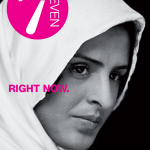 DENNIS GRATZ was born in Sarajevo in 1978. He graduated from Law School in Sarajevo, holds an MA in Democracy and Human Rights, as well as s a PhD in Philosophy with his thesis named “Elitocide in Bosnia and Herzegovina 1992-1995”.
DENNIS GRATZ was born in Sarajevo in 1978. He graduated from Law School in Sarajevo, holds an MA in Democracy and Human Rights, as well as s a PhD in Philosophy with his thesis named “Elitocide in Bosnia and Herzegovina 1992-1995”.
He was elected the president of Naša stranka in 2011, and he held this position until the party’s Third congress in 2015 when he took over the position of the president of the party’s main Board. He has worked as a lecturer, organiser and researcher on different university study programmes. Since 2005 he has been working in the lawyers’ office “Ešref Grecić and Dr Dennis Gratz”, and as a Court interpreter for the English and German language on the Cantonal Court in Sarajevo.
He is also a member of the Association Education builds B&H, he was a member of the main Board and the Political Council of ACIPS, and a member of the Sarajevo Centre for Politics and Management. Beside his strong professional and social engagement, Dennis manages to dedicate part of his free time to the movies, literature and music.
Dennis Gratz: “The function I am holding exists exactly in order for us MPs to raise awareness of the public on violence against women and similar problems.”
Why have you accepted to be a part of the play SEVEN?
I consider it is necessary, wherever possible, to point out the problem of violence against women and to fight for ending that problem. Besides the education system and the media, the most important role in the prevention of violence against women is assigned to the state (legislative, judicial and police) institutions, and to the engaged arts. Although the highest responsibility is on the state institutions, none of those segments of society can solve the problem on its own, but only in cooperation with all the others. Society as a whole creates the problem, so it has to solve it. The play “Seven” is, according to my opinion, significant because it shows the importance of those common actions. Besides its power of artistic suggestiveness to impact the consciousness of the listeners, it will, hopefully, attract the attention of the public and point out this problem, as it has strongly influenced us (MPs) who read it, so we would be more dedicated in the struggle through the authorities to seek the best way to handle violence against women.
More of this interview is available in the B/C/S version of the article which you can find here.
Interview done by: Maida Zagorac, Sarajevo Open Centre
The reading of the play SEVEN will take place on 26 November in the Chamber Theatre 55 Sarajevo at 3 P.M.
The realisation of this event is being supported by the US Embassy in Bosnia and Herzegovina, the Swedish Government via the Swedish International Development Cooperation Agency (Sida) and Hedda Produktion AB.
 A Film About the Tour of the Documentary Drama SEVEN
A Film About the Tour of the Documentary Drama SEVEN Sarajevo Times, July 27 2013 – Drama “Seven” on Women’s Activism on Promo Tour in BiH
Sarajevo Times, July 27 2013 – Drama “Seven” on Women’s Activism on Promo Tour in BiH